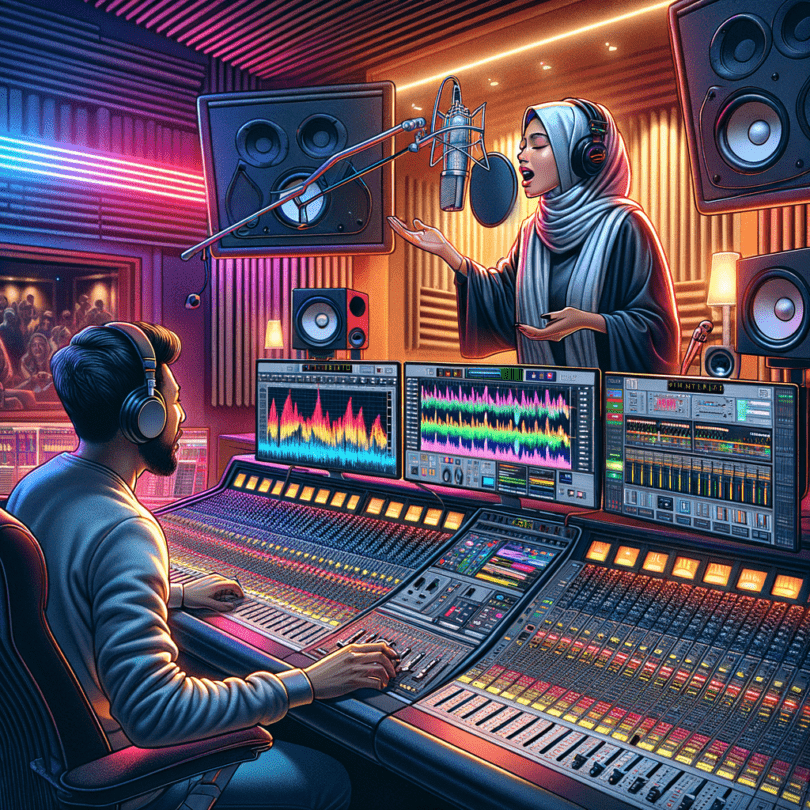Oh man, just typing the word “Autotune” gives me that rollercoaster feeling. You know, that mix of excitement and dread? Because, let’s be honest, it’s a real hot-topic in the music world. You’ve got the folks who miss the days of “raw” vocals, while others just lap up the shiny, perfected sounds that dominate today’s pop charts. It’s like when you either love or hate pineapple on pizza—there’s no in-between, really.
This all got me thinking about how Autotune has forever altered pop music. I mean, it’s hard to imagine the current music scene without it, right? So, let me sprinkle some personal musings on this technological marvel and offer my take on what it all means for artists and us, the ever-critical listeners.
The Rise of Autotune
So, flashback to the late ’90s when this nifty bit of magic was dreamed up by an engineer named Andy Hildebrand. It was all supposed to be about helping singers hit the right notes. Sounds harmless enough, doesn’t it? Just a bit of help here and there. But, who would’ve thought it would end up leaving such a massive mark on music?
I remember the first time I heard Cher’s “Believe.” It was like—I hate to use the word “magical”, but it really was. Her voice would just kinda morph and shimmer in bits. I had no clue that this was the start of something so big, so era-defining. Fast forward to the early 2000s, and boom! Autotune was everywhere! Artists were using it not just for fixing pitch but as a full-blown instrument. It felt kind of revolutionary, you know?
Kanye West’s “808s & Heartbreak”. Wow. That album really left its mark on me. It was vulnerable, emotional, but had that electronic feel draped all over it thanks to Autotune. Love it or hate it, it was an authentic slice of Kanye, with his creativity cranked up to eleven. The way he used Autotune not just as a backup, but as a core storytelling device—totally rad.
Voicing the Unheard
Honestly, it’s liberating in a way. Autotune has smashed open the door for so many who maybe don’t have Whitney Houston pipes or Freddie Mercury’s flair, you know? It made the realm of pop music a whole lot bigger, giving talented people a chance to shine simply by letting their creativity fly.
There’s something thrilling about that evolution. It’s like watching a kid with a new toy—they might use it weirdly or even end up breaking it, but what they create is uniquely theirs. Pop music kinda went that way too: familiar yet filled with fresh surprises.
Criticism and Controversy
And oh boy, the criticism. It’s like this cloud that refuses to go away. Plenty of times I’ve chatted with friends, swapping stories about music, and someone brings up how Autotune is “killing real music.” And, truth be told, I sorta get the criticism. We’ve been spoiled by legends like Whitney Houston and Luther Vandross. There’s a craft in their music that’s mesmerizing, y’know?
But, there’s also something quite beautiful about change. Especially in pop music where reinventing the wheel is part and parcel; Autotune injected a kind of modern edge into it all. Sure, sometimes it’s overdone, and I end up rolling my eyes at overused effects. But some artists do brilliant things with it—like a painter using a new color palette.
The New Normal
As of now, you can’t really escape Autotune; it’s integrated into the musical making process like seasoning in a soup. It defines pop music for those TikTok stars and bedroom producers crafting hits from their garages. And for kids nowadays, this is just what music sounds like. Not better, not worse—just evolved, you know?
I wonder what it’s like for the youngins growing up with this sound as the norm. For them, it’s not a modification; it’s just how music is, which is both fascinating and kind of comforting.
Empowerment Through Technology
There’s something downright empowering about Autotune too. It’s breaking down some of music’s traditional barriers, letting all sorts of new voices be heard. In its own way, it’s kind of a punk rock rebellion against an industry that’s, well, not always keen on changing.
I often think about all those hidden talents now getting heard. With just a laptop and the right software, they can reach audiences across the globe. It doesn’t replace hard work (nothing does), but it certainly levels the music field some.
At the end of the day, Autotune is still a polarizing topic. It’s both loved and loathed, and its mark on pop music is crystal clear. It really makes me reflect, this beautiful blend of technology infused with art, where polish sometimes clashes with raw authenticity.
Thinking about it all, it kind of reminds me of nature’s cycles. Seasons—they transform, adapt, and evolve, leaving their own mark while ushering in something new. In many ways, Autotune is like that, symbolizing the ever-evolving seasons of music. It’s a testament to how creative spirits embrace mysterious horizons, reshaping what pop is today and the exciting possibilities of what it could become.

